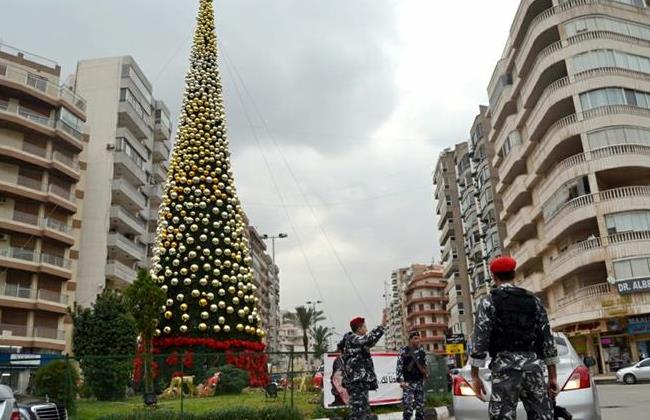U.S. thinkers see strength in Lebanon’s political system
Bernd Debusmann/ The Daily Star/Dec. 31, 2014
Decades of Civil War and turmoil in Lebanon have “vaccinated” the country against future turmoil, according to an analysis by two of America’s most eminent thinkers on global risk.
The notion that past bouts of chaos can serve as an indicator of future stability is the central theme of an essay by Nassim Nicholas Taleb and Gregory Treverton in the latest issue of Foreign Affairs, the influential magazine of the Council on Foreign Relations. Taleb is a Lebanese-American who turned from Wall Street trader to best-selling author and celebrity philosopher.
Treverton last September became chairman of the U.S. National Intelligence Council, a post that includes coordinating intelligence forecasts from America’s 16 spy agencies.
To bolster their argument that volatility signals stability, and vice versa, the two look at how Syria and Lebanon were perceived at the beginning of the Arab Spring in 2011. “Many pundits argued that Syria’s sturdy police state, which exercised tight control over the country’s people and economy, would survive the Arab Spring undisturbed,” they write. “Compared with its neighbor Lebanon, Syria looked positively stable. Civil War had torn through Lebanon throughout much of the 1970s and 1980s, and the assassination of former Prime Minister Rafik Hariri in 2005 had plunged the country into yet more chaos.”
Yet today Syria is in shambles, they write, while Lebanon has withstood the influx of refugees from the Syrian civil war and related pressures from the turmoil next door. “Surprising as it may seem, the per capita death rate from violence in Lebanon in 2013 was lower than that of Washington D.C.” (The essay, adapted from a report by the RAND institution for which Treverton used to work, was written before Islamist gunmen and Lebanese troops clashed in northern Lebanon).
Why did seemingly stable Syria begin to fall apart while “always-in-turmoil Lebanon” proved more robust than pundits predicted? Syria’s calm facade concealed deep structural vulnerabilities. “Lebanon’s chaos, paradoxically, signaled strength. Fifteen years of civil war had served to decentralize the state and bring about a more balanced sectarian power-sharing structure.” A free-market economy made Lebanon less vulnerable to disruption than Syria with its rigid Soviet-style system.
But the biggest difference between the two neighbors, according to Taleb and Treverton, was that Syria had no recent record of recovering from turmoil. Lebanon did, and “countries that have survived past bouts of chaos tend to be vaccinated against future ones.” In that thinking, the best indicator of a country’s future stability is not past stability but volatility in the recent past.
In looking at Lebanon, Taleb draws from experience: He was 15 when the Civil War reached his family’s home at Amioun and the Lebanese paradise suddenly evaporated, as he phrased it in the foreword of The Black Swan, the 2007 book that made him an international celebrity. The book deals with the role unexpected major events play in world affairs. It has been translated into 33 languages and was credited by some with predicting the banking and economic crisis of 2008.
Expanding their Syria-Lebanon argument to the rest of the world, the two authors identify other countries at risk. Saudi Arabia tops the list, exhibiting signs of being very fragile.
“Saudi Arabia is an easy call: It is extremely dependent on oil, has no political variability and is highly centralized. Its oil wealth and powerful government have papered over the splits between is ethnoreligious units, with the Shiite minority living where the oil is.”
For similar reasons, Bahrain should be considered “extremely fragile,” write the pair. Also on the list of endangered Middle Eastern countries: Egypt. Its recovery from the chaos of the revolution has been largely cosmetic and the government is still highly centralized and bureaucratic.
Outside the Middle East, Venezuela and Russia face trouble in the future.
Both have oil-based economies, highly centralized political systems and no record of having survived massive shocks. In contrast, Indonesia, Malaysia, the Philippines, South Korea and Thailand survived the 1997-98 Asian financial crisis, drew lessons from it and adjusted their institutions and practices.
In western Europe, Taleb and Treverton view one country as particularly robust, for reasons that echo their view of Lebanon. “Italy, paradoxically, shows no sign of fragility,” they write.
It is decentralized and has bounced back from perennial political crises that gave the country 14 prime ministers in the past 25 years.
Bernd Debusmann is a former Reuters world affairs columnist. This article was written exclusively for The Daily Star.



















